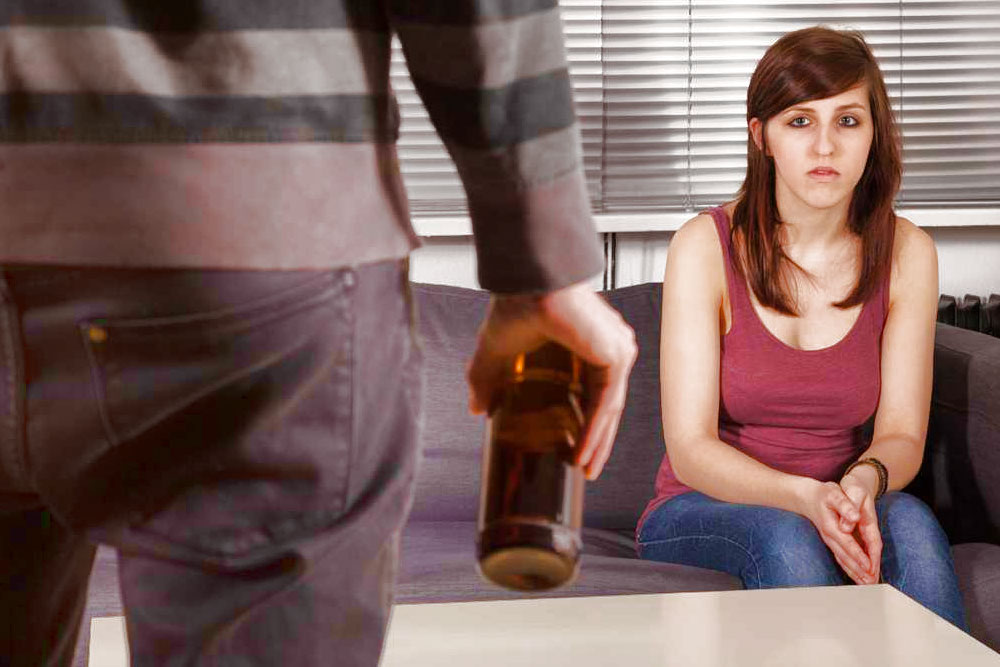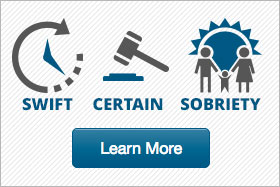
Domestic violence is something I witnessed as a child growing up in my home. I saw the way it tore a home apart like the stormy sea on a stranded vessel. The screaming, physical violence and the sense of hopelessness can be too much for anyone to handle especially for the child/children involved. I can say that all too many times I watched my mother drink alcohol until no end until all her inhibitions seemed to dissolve like the alcohol in the bottle. It was confusing and extremely terrifying to see the beast inside someone come out in full force, taking control of every ounce of my mother. She became more depressed, angry, irritated, mentally unstable, disconnected, and confused. As it may seem that my mom is this evil woman, I can say that is not true. She struggled for most of her life with her own demons and past issues that became something that lived in the shadows of her mind like the bats in the night’s sky. Always there, but hard to see, and hard to address especially while under the influence. My mother is a great and kind woman who was a victim herself. As I look back on those days of complete horror I realize that there was such a correlation with my mother’s alcohol and drug problem as well as her need to control and power my father and household. It was a powder keg that was laced with nails ready to shred through the victims involved. Therefore, I actively believe that the combination of alcohol/drug monitoring/treatment and counseling is an absolute need.
The Correlation Between Alcohol and Domestic Violence
The case study, “Drugs, Alcohol, and Domestic Violence in Memphis,” by the National Institute of Justice places an alarming statistic of 92% regarding alcohol or drug abuse on the day of domestic abuse. Most professionals would say that alcohol abuse does not cause domestic violence, but it can be a factor in making the incident worse. The use of alcohol affects anyone’s ability to process information and in a lot of situations misinterpret what we are being told or is happening. We can see that having an issue with processing information and misinterpreting what is really occurring could increase the severity or chances of prevention in domestic violence. The Department of Justice, in a study performed in 1994, found that more than half of the defendants who committed murder of their spouse were drinking alcohol at the time. (Bureau of Justice Statistic, Domestic Violence, Violence between Intimates. 1994).
The Impact of Domestic Violence on Victims
When it regards the victim in these cases we are reminded of the impacts that occur due to the abuse of domestic violence. The World Health Organization states, “The impacts of intimate partner violence are wide-ranging. For the victim, health effects include physical injury, which for some women may lead to pregnancy complications or miscarriage), emotional problems leading to suicide, suicidal ideation and depression, and alcohol or drug abuse as a method of coping.” (World Health Organization Intimate Partner Violence and Alcohol Fact Sheet, pg. 3). Then there are children that are sometimes forgotten. Studies indicate that children who live in homes with a history of alcohol or drug abuse are more probable to suffer from physical, emotional, and sexual abuse (U.S. Department of Health and Human Services, Administration for Children and Families. (2003) “Substance Abuse and Child Maltreatment.” National Clearinghouse on Child Abuse and Neglect and Information).
24/7 Sobriety Programs for Domestic Violence Cases
Punishments for domestic violence can range from actual custody time, probation, restraining orders, relinquished custody of their children, or counseling/classes such as the “52-Week Domestic Battery Class.” Occasionally the Criminal/Family Courts involved will order treatment, AA/NA, or drug and alcohol counseling if alcohol or drugs is a nexus to the crime. It is rare that the courts in these cases also order alcohol or drug monitoring as this may not be needed for every situation. It can still be a tool that can be used to benefit the public as well as the offender.
24/7 Sobriety Programs, typically applied in cases that involve DUI offenders, are starting to be used as a tool for a multitude of other offenses in our justice system, including domestic violence. The program requires individuals arrested for or convicted of alcohol-involved offenses to submit to breathalyzer tests twice daily or wear a Continuous Alcohol Monitoring Bracelet. Positive tests result in swift and certain, though modest, penalties, such as a day or two in jail. The approach is based on the idea that the certainty and rapidity, rather than the severity of the punishment, more effectively deters problem drinking.
The fact that someone has abused/assaulted another while under the influence can show a need not only for counseling but alcohol/drug monitoring combined with treatment to ensure complete offender accountability. Monitoring an individual’s alcohol/drug sobriety can and has shown an increase in the reduction of recidivism, as well as a decrease in failure to appears to court, classes, and other mandated programs.
“The comprehensive monitoring and care management model under development for the 24/7 Sobriety Project has wide applicability within the criminal justice system, well beyond the DUI offense, because alcohol and illegal drug use are major contributors to crime and incarceration. This program demonstrates a powerful ability to stop alcohol and drug use as well as the criminal behavior that alcohol and drug use often lead to among arrested offenders. The program has been extended to a wide range of criminal charges related to alcohol and drug use, including domestic violence and civil abuse and neglect cases. These changes show the broad applicability of the 24/7 Sobriety Project, far beyond the original focus on DUI offenders and alcohol use.”
It is for the benefit of the offender, victim, and community to monitor the offender’s sobriety while they are participating in their domestic battery classes and other court-mandated programs. It is a sure way to make sure that the offender is truly getting the full range of opportunity to changes their ways and better their future, in return protecting the public and those directly affected.
As a direct survivor of domestic violence, I can tell you there is never a day that I don’t look back and wish I could have done something to stop it in its tracks. I truly have faith that the systems, agencies, and programs involved like the 24/7 Sobriety Programs, will eventually bring an end to the horrific act for all involved. Until that day I will continue to fight to bring an end to domestic violence.
On a brighter note, my mother and father are still married to this day and are truly in love. They have never given up on one another no matter the obstacles they were presented.
As I always say, “The past is forgiven, not forgotten”.





